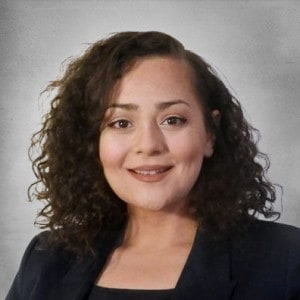September is Blood Cancer Awareness Month, and experts say knowing the risk factors and symptoms of these diseases can save lives!
Risk factors including aging, smoking and family history, while symptoms range from unexplained bruising and bleeding to fatigue to bone pain.
If you have concerns, see your doctor and ask about blood and urine tests that can screen for signs of blood cancer.
There is no routine screening for blood cancer, so it is important to be aware of risk factors and symptoms and see a doctor if concerns come up. Awareness can save lives – these diseases are treatable and in some cases curable if caught early.
Regional One Health Cancer Care hematology and medical oncology specialists Dr. Swapna Thota and Dr. Noura Elsedawy hosted a “Lunch and Learn” during September’s National Blood Cancer Awareness Month to share what patients should know about blood cancers.
“The words ‘blood cancer’ create a lot of fear,” Dr. Thota said. “We want patients to know that they can be treated successfully. Go to your doctor. Talk to your doctor. Make sure you’ve been heard by your doctor. Early diagnosis can save lives!”
What is blood cancer?
Blood cancer starts in the bone marrow when abnormal cells multiply and interfere with healthy blood cells. There are three main types – leukemia, lymphoma and multiple myeloma.
Multiple myeloma affects the plasma cells, which make antibodies to fight disease. Lymphoma starts in the lymph nodes and affects lymphocytes, which fight infection. Leukemia causes the bone marrow to produce so many white blood cells that it can’t produce enough red blood cells.
Within those three general categories, there are dozens of specific diagnoses.

“We want patients to know that they can be treated successfully,” says Dr. Swapna Thota. “Go to your doctor. Talk to your doctor. Make sure you’ve been heard by your doctor. Early diagnosis can save lives!”
“Blood cancer is a broad umbrella,” Dr. Thota said. “With diseases like breast cancer or prostate cancer, there are only a few scenarios. That isn’t true with blood cancer. For example, with acute myeloid leukemia, there are 85 types. For lymphoma, there are between 100 and 130 types.”
Who is at risk?
Age is a major risk factor for blood cancer. Dr. Elsedawy explained aging gives the blood cells more time and opportunity to behave abnormally.
Dr. Elsedawy, who specializes in multiple myeloma and other plasma cell disorders, said, “The average age of my patients is between 65 and 70. Almost all of them are over 40.”
Dr. Thota, a specialist in leukemia and other blood cancers, said most of her patients are in their 50s or 60s. She said other risk factors include smoking, prior cancer diagnoses, family history, certain genetic disorders, and exposure to chemotherapy, radiation therapy and benzene.
Race and gender can be factors as well. African Americans are more likely to be diagnosed with multiple myeloma, and blood cancers tend to be more prevalent in men.
What are the symptoms?
Patients with advanced undiagnosed blood cancer often end up in the emergency room because their symptoms are so severe. Patients with acute leukemia have trouble breathing or kidney failure, while those with plasma cell disorders experience broken bones.
Dr. Thota and Dr. Elsedawy encourage patients to be aware of earlier symptoms.

“By seeing a doctor who specializes in blood cancer or plasma cell disorders, patients can have better care and better outcomes,” Dr. Noura Elsedawy says.
These include unexplained bruising or bleeding, fatigue or weakness, frequent infections, enlarged lymph nodes, bone pain, night sweats, weight loss and appetite loss. Other plasma cell disorders can also cause numbness or tingling or decreased kidney and heart function.
How can I catch cancer early?
If you’re experiencing symptoms, talk to your health care provider, especially if you’re in a high-risk group. Doctors can run blood and urine tests that show red flags like changes in blood count, high calcium levels and extra protein.
“If you have any suspicious symptoms, your primary care provider, nephrologist, cardiologist, or another provider can screen you,” Dr. Elsedawy said. “Screening is very important for plasma cell disorders. If we catch them early, we can control them. If they aren’t caught early, patients can suffer broken bones, kidney failure and severe anemia, and treatment is more difficult.”
Dr. Thota added, “For younger patients, leukemia can be cured if you’re diagnosed early and get the right treatment. We start treatment fast, sometimes in as little as seven days. The faster you get to a doctor that specializes in this disease, the more likely you’ll be a success story.”
What should I do if I’m diagnosed?
Seeking prompt care from a doctor who specializes in your condition is key to a good outcome.
Regional One Health Cancer Care’s multidisciplinary team of fellowship-trained hematologists and oncologists are sub-specialists in the disease types they treat. Many of our doctors sit on the National Comprehensive Cancer Network panels that establish recognized guidelines for care.
“Because there are so many different types of these diseases, getting an accurate diagnosis and finding the right treatment can be complicated,” Dr. Thota said. “As specialists, we provide the best medical care for your individual needs.”
Dr. Elsedawy added, “We have the experience to understand these complex conditions and to offer patients comprehensive treatment and monitoring. By seeing a doctor who specializes in blood cancer or plasma cell disorders, patients can have better care and better outcomes.”